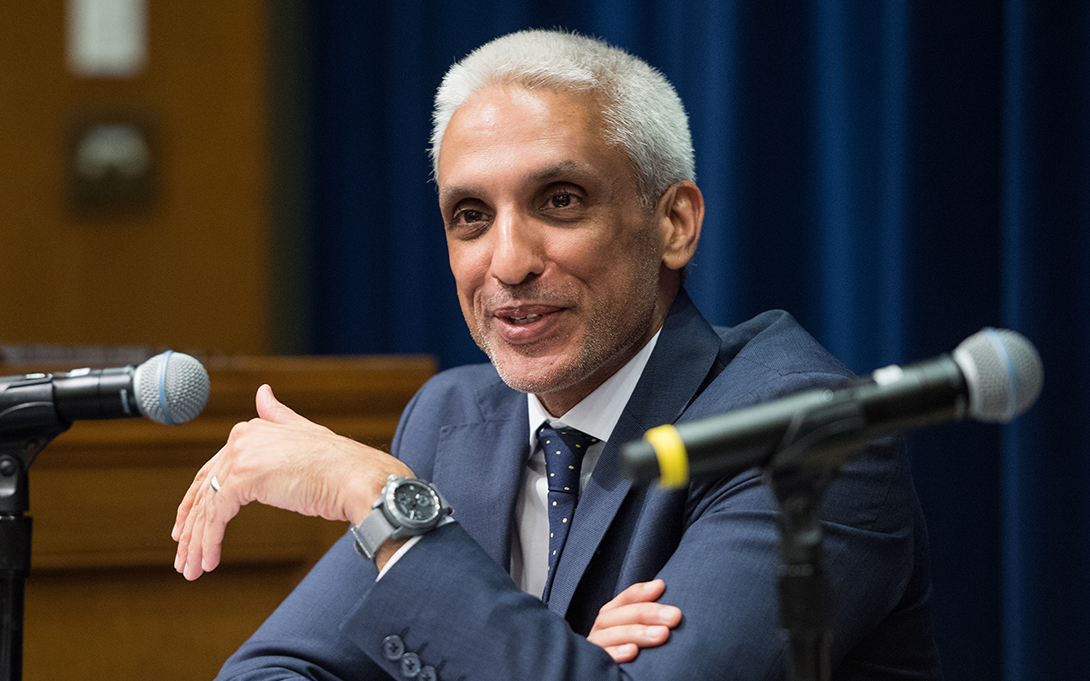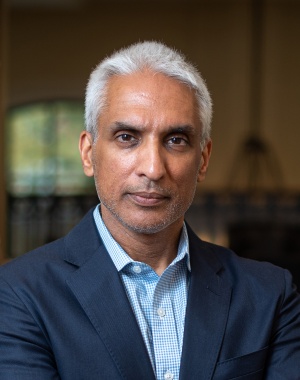
Towsley policymaker in residence Javed Ali, asserts that the latest reports about Russian intelligence officers offering bounties to the Taliban in Afghanistan to kill American soldiers need to be addressed in the larger context of Russia’s anti-US agenda.
Writing with Josh Kirshner in Newsweek June 29, Ali says, “This appears part of a larger Russian ‘active measures’ effort to wage a strategic campaign using disinformation, propaganda and unconventional warfare against the United States. Whether through interference in the 2016 elections, propaganda efforts capitalizing on COVID-19 and the George Floyd-related protests and now this Taliban-bounty program, the [military intelligence agency] GRU has been a key instrument for President Vladimir Putin.”
They outline several options “if the White House is indeed serious on pushing back on Russia's multi-pronged campaign to weaken and destabilize the United States.”
Those options include diplomatic communication directly between President Trump and President Putin, Secretary of State Mike Pompeo and Russian Foreign Minister Sergey Lavrov, or Special Representative Zalmay Khalilzad and his Russian counterpart in Kabul.
“Any diplomatic engagement must outline the recent history of Russian belligerence against the United States and demand that they cease immediately, as the U.S. reserves the right to retaliate,” he said.
They also mention bolder military moves like increasing additional U.S. troops in Poland beyond the 1,000 just recently announced, bolstering military aid to the Ukraine on top of the $250 million already pledged for this year or rethinking the drawdown of U.S. troops in Germany or Afghanistan.
And economic options could involve a renewed round of sanctions against key Russian leaders, entities and industries that support its national security activities, including the GRU.
Lastly, a more assertive intelligence campaign against the GRU would also provide the White House with tools across a spectrum of activity.
They conclude, “All of these options carry risks and opportunities for the United States, and there is no silver bullet to combat Russian active measures. However, presenting the president and America's national security leadership with such choices can protect U.S. national security and could deter Russia with national elections only four months away. Time will tell whether the president acts decisively.”
Javed Ali is a Towsley Foundation Policymaker in Residence at the Ford School. A former senior director for counterterrorism at the National Security Council, Ali has over 20 years of professional experience in national security and intelligence issues in Washington, D.C., serving in the Defense Intelligence Agency, the Department of Homeland Security, and the Federal Bureau of Investigation. While at the FBI, he also held senior positions on joint duty assignments at the National Intelligence Council, the National Counterterrorism Center, and the National Security Council under the Trump Administration. Ali holds a BA in political science from the University of Michigan, a JD from the University of Detroit School of Law, and an MA in international relations from American University.
